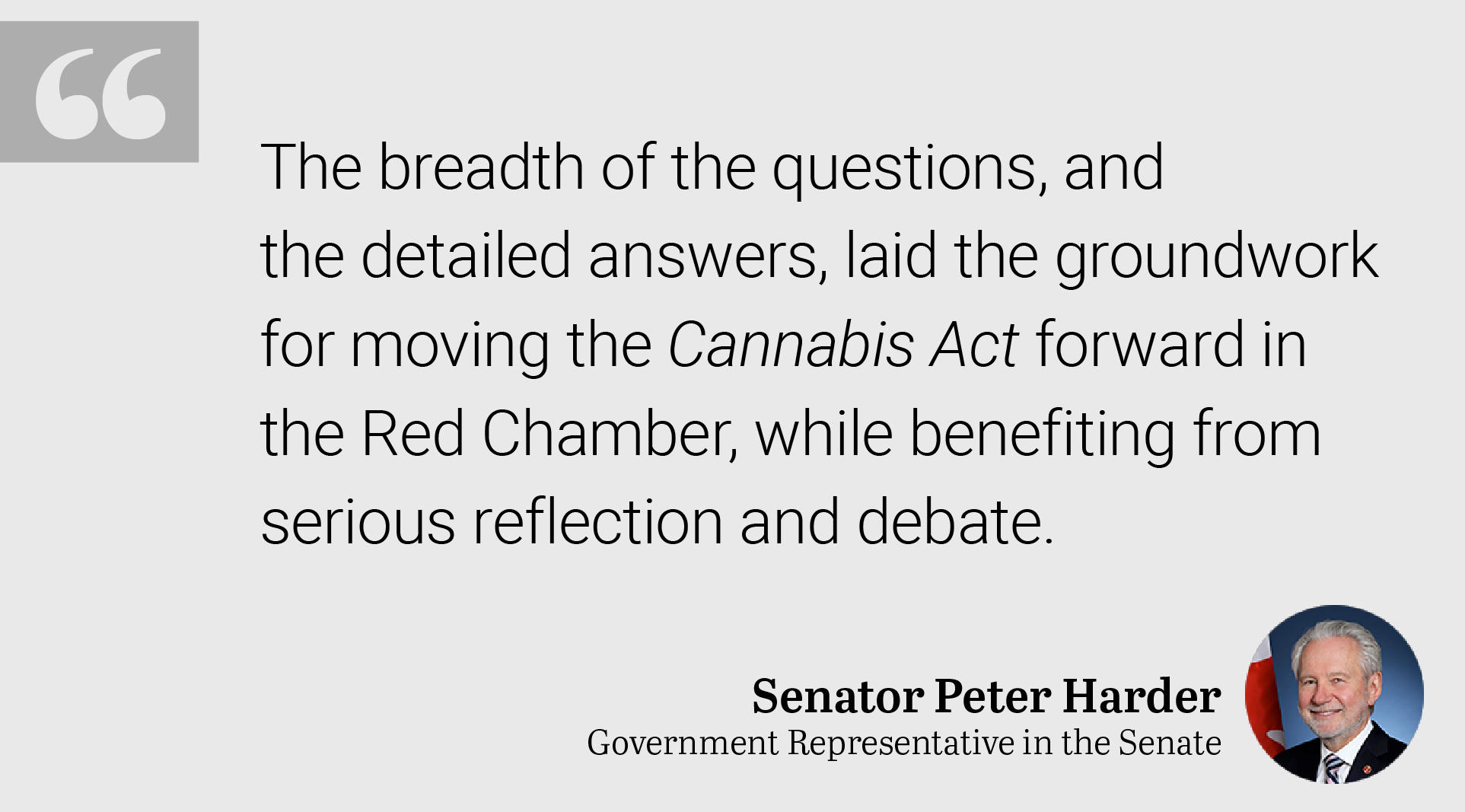Perspectives - February 6-8, 2018
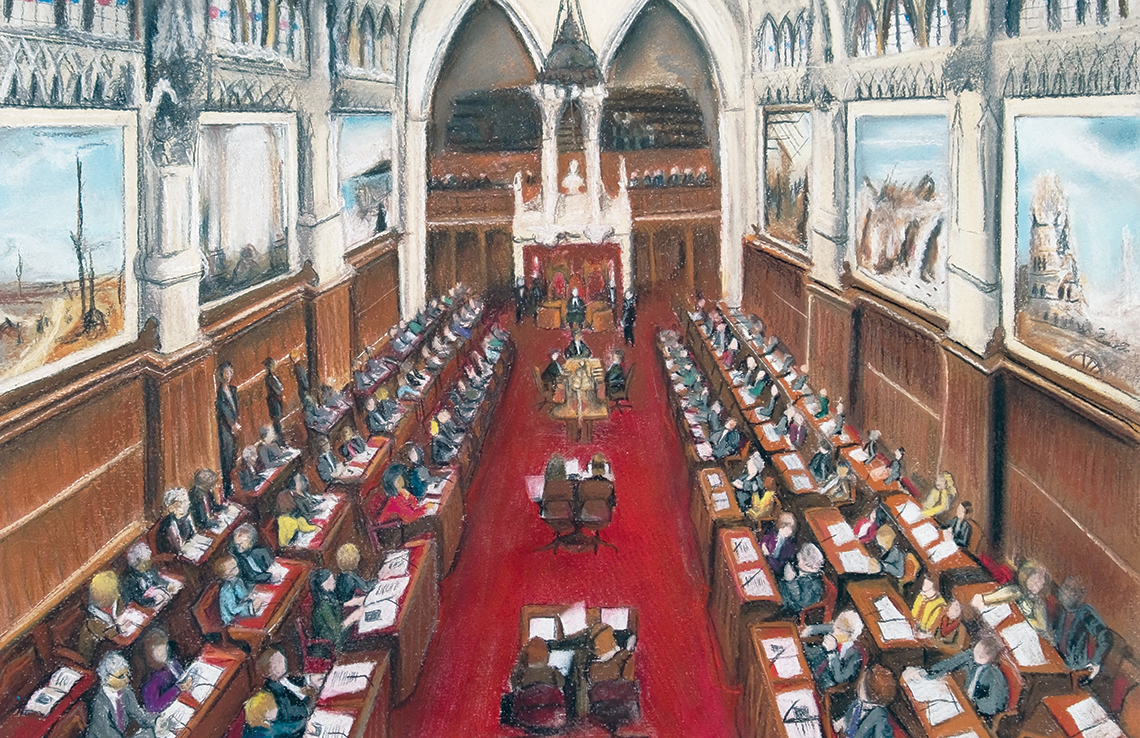
Last week at the Senate: a Committee of the Whole to discuss the Cannabis Act, an emergency debate on the Trans Mountain pipeline, a call to address the Confederation Bridge toll, and a bill to reverse injustices done to sexual minorities.
Government
The Senate made history this week when it opened its doors to cameras for a special session—a Committee of the Whole—to look at Bill C-45, concerning the legalization of cannabis.
Ministers Ginette Petitpas Taylor, Ralph Goodale, and Jody Wilson Raybould, as well as Parliamentary Secretary, Bill Blair, a former police chief, spent two hours on the Senate front lines fielding questions about this sweeping legislation that will transform Canada’s policy response to cannabis use.
Senators approached the question from different angles: would the timetable for legalization allow time to deliver public health initiatives? How would the limit on four plants per household be enforced? How and when would edible cannabis products be regulated? And what would be the impact of cannabis cultivation on growers of hemp?
Ministers also fielded concerns about mental health and youth, policing and enforcement in municipalities and Indigenous communities, as well as whether corporate structures of licensed producers would allow transparency to prevent participation by organized crime.
Answers focused on the public health and safety imperative of C-45, that will protect youth and communities through education, enforcement, and the eventual eradication of organized crime as the black market gives way to strictly regulated and lawful production and trade of cannabis.
The breadth of the questions, and the detailed answers, laid the groundwork for moving the Cannabis Act forward in the Red Chamber, while benefiting from serious reflection and debate. And thanks to video cameras, Canadians could see this work taking place in real time.
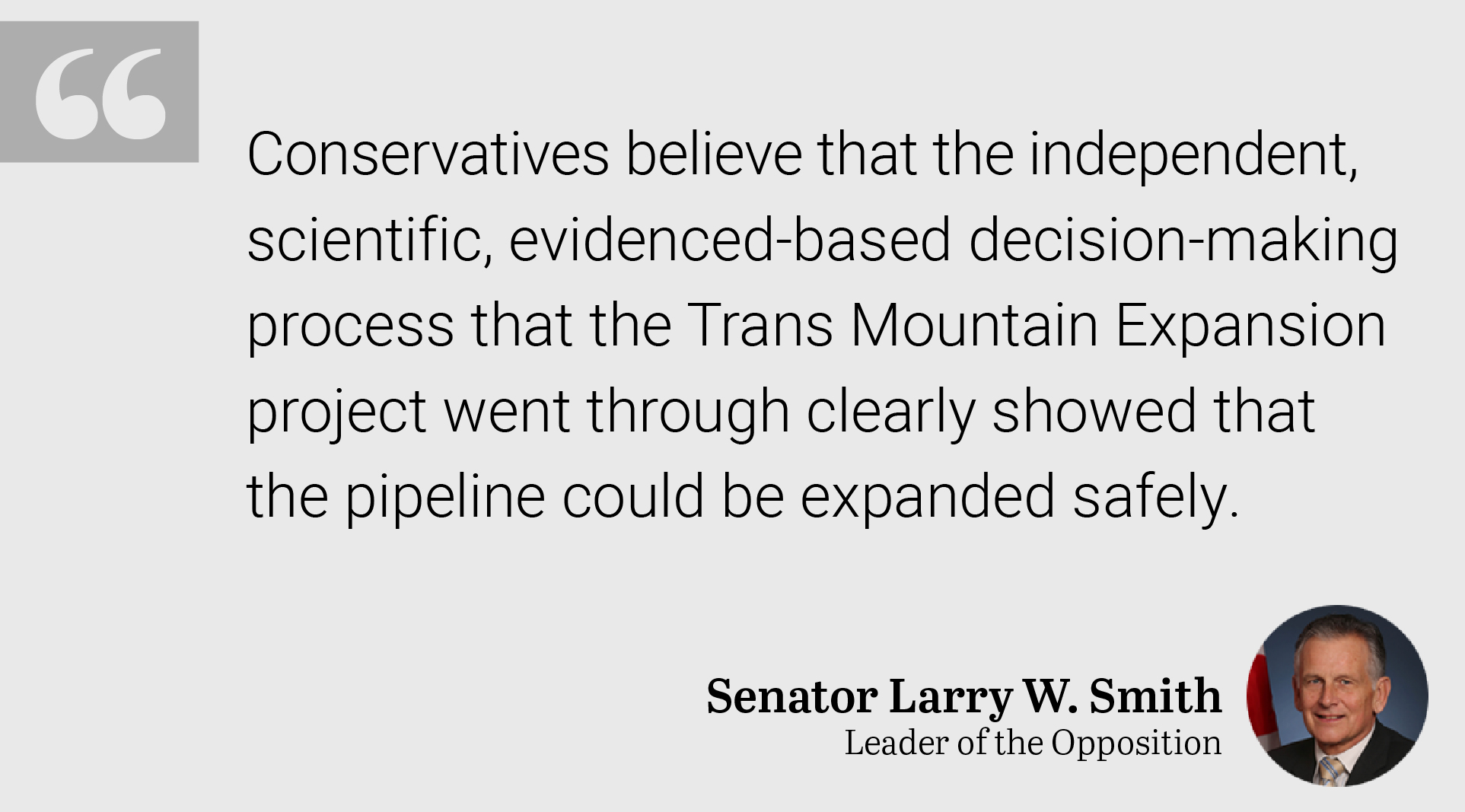
Opposition
This week, Senator David Tkachuk called for an emergency debate in the Senate in an effort to persuade the Prime Minister to take immediate action to resolve the growing tensions surrounding the Kinder Morgan Trans Mountain Pipeline project. Senators from coast to coast voiced near unanimous agreement that the project is in Canada’s national interest.
The Prime Minister has already announced that he will approve the construction, and now has a responsibility to demonstrate that he has the leadership capabilities to ensure that the project comes to fruition for Canada.
Senator Tkachuk stated, “This is a serious issue that has ramifications for the economy of Alberta and for Canada. The pipeline expansion itself is worth an estimated $57.4 billion. Over the construction period and the next 20 years, it will add combined revenue of $46 billion to the Canadian economy. It means 15,000 construction jobs and an estimated 37,000 direct and indirect jobs per year.” Oil producers will earn more revenue for their product, which is extracted with higher environmental and human rights standards than foreign oil. Government will collect more tax revenue and these revenues will contribute to services that benefit all Canadians.
Canadians know the expansion of the pipeline is the safest method to transport oil. Conservatives believe that the independent, scientific, evidenced-based decision-making process that the Trans Mountain Expansion project went through clearly showed that the pipeline could be expanded safely.
The Senate Conservative caucus is working hard to give this issue the attention it requires.
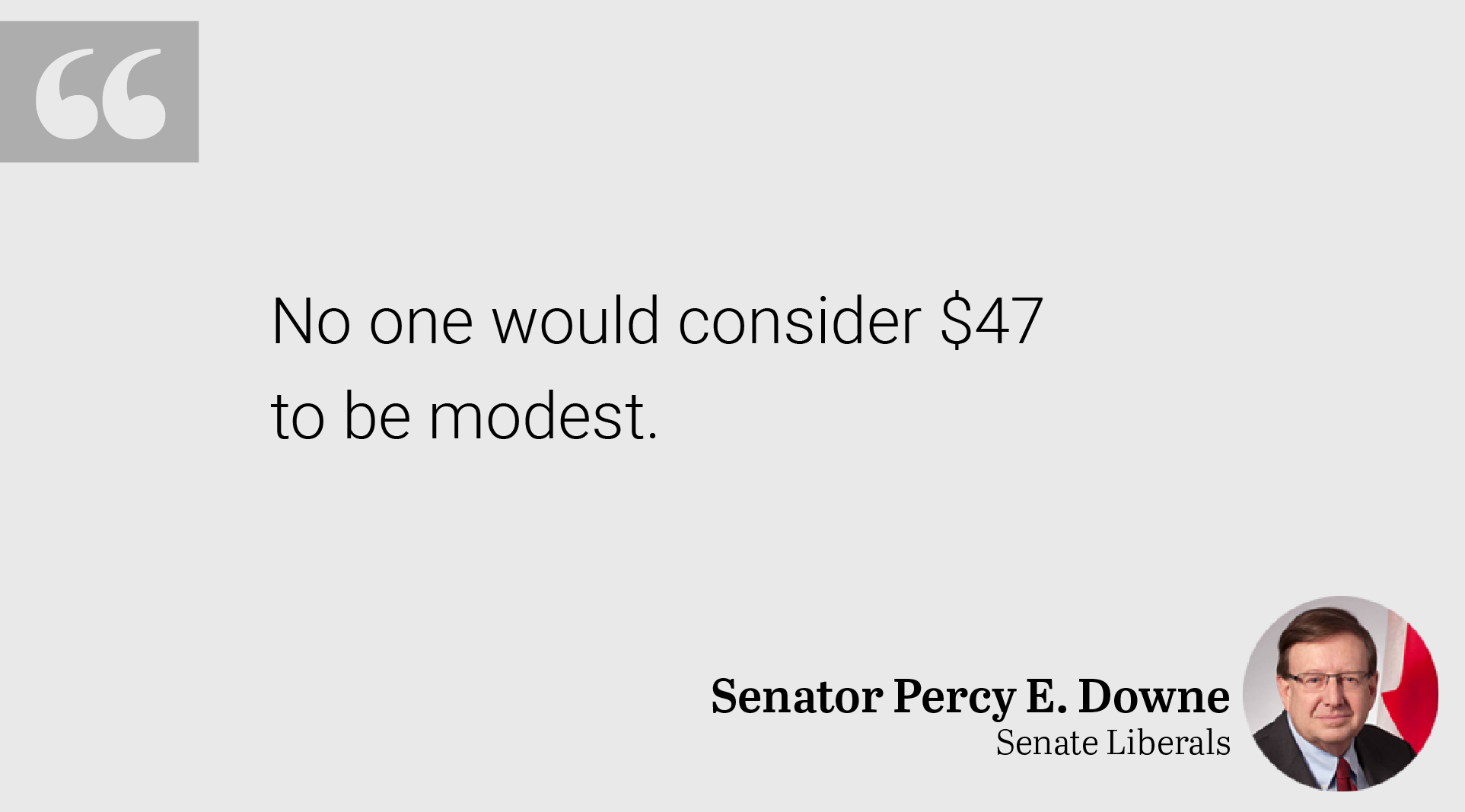
Senate Liberals
This week, I asked the Honourable Peter Harder, Government Representative in the Senate, for an update on Prime Minister Trudeau’s commitment regarding Confederation Bridge.
A year ago Prime Minister Trudeau acknowledged that Confederation Bridge was “an expensive bridge to cross,” and made a commitment to “look at what can be done to make sure people are able to travel freely, travel efficiently and openly across this country at modest costs.”
Since he made that commitment, there has been a change in the toll on Confederation Bridge. Unfortunately, it has gone up, to $47.
I asked when will the Prime Minister follow through on his commitment that Canadians can travel “at modest costs” across their country. No one would consider $47 to be modest.
Because the Bridge is privately-operated, I also asked Senator Harder if the Government of Canada has engaged in discussions with the operator to amend the current 35-year operating contract, under which the Government of Canada provides a yearly subsidy to the operator, which also keeps the toll revenue. If you extend the contract, the tolls go down dramatically. If you extend the contract for a reasonable time, the tolls would actually disappear because the subsidy would carry it.
Last year, on June 1, I submitted an access-to-information request to inquire about this, but Transport Canada has asked for repeated extensions, and to date I have received no information.
Senator Harder pledged to make further inquiries, and I look forward to his follow up information.
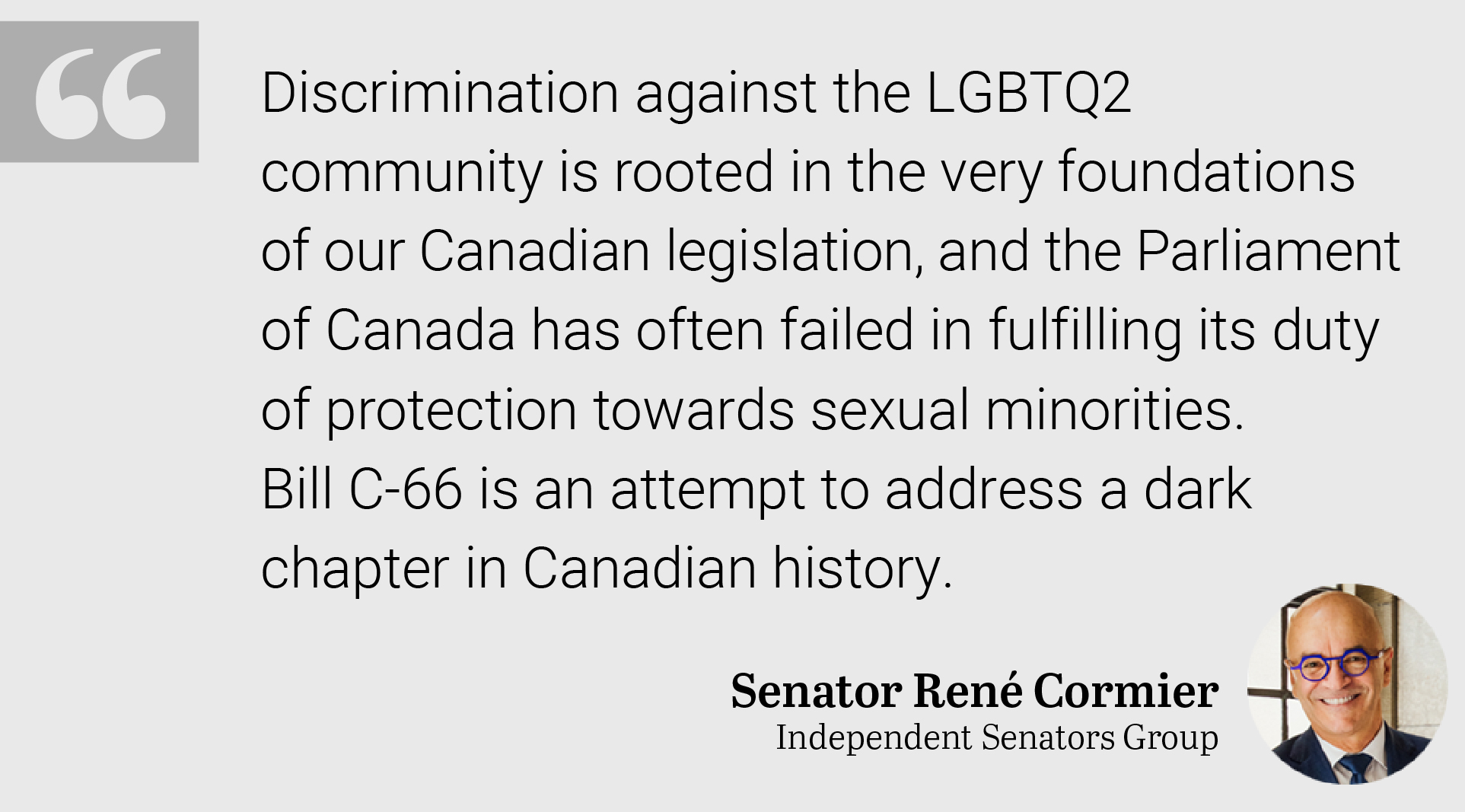
Independent Senators Group
“They drove her to a small building at the edge of the military base. In a small, dimly lit room, they interrogated her for five hours about every detail of her sexual history. The military interrogators told her that if she confessed to her ‘perversions,’ she could stay in the Canadian Armed Forces. Exhausted, scared and humiliated, she said she was young, experimenting and confused. … Finally, in 1984, she was told that she was being forced out of the army because of her homosexuality.”
This is the story of just one of the many members of the LGBTQ2 community who, for decades, were victims of oppressive treatment and policies and systemic discrimination sanctioned by the Canadian government.
Bill C-66 is part of the Government of Canada’s commitment to correct the historical injustice affecting thousands of LGBTQ2 federal employees, especially members of the Canadian Armed Forces and the RCMP, as well as Indigenous members of the LGBTQ2 community, wrongfully convicted because of their sexual orientation or gender expression. It seeks to correct the criminalization of consensual sexual activity between same-sex adults. It recognizes that the criminalization of such activity may constitute a historical injustice because, were it to occur today, it would be inconsistent with the Canadian Charter of Rights and Freedoms.
C-66 gives the Parole Board of Canada the power to expunge convictions deemed to be unjust by permanently removing the judicial records of those convictions from all federal databases.
Discrimination against the LGBTQ2 community is rooted in the very foundations of our Canadian legislation, and the Parliament of Canada has often failed in fulfilling its duty of protection towards sexual minorities. Bill C-66 is an attempt to address a dark chapter in Canadian history.



